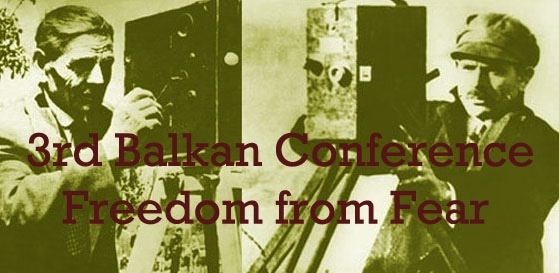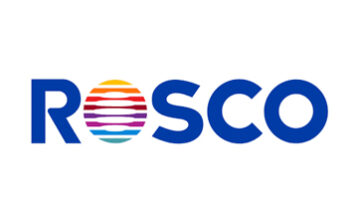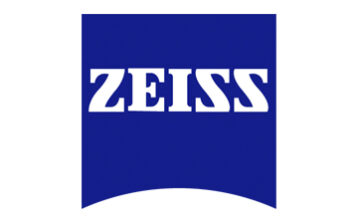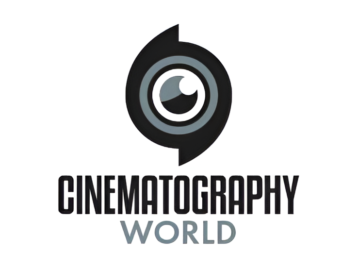
Dire conditions for film workers in Greece were graphically described to delegates at the Third Imago Balkan Conference for Cinematographers organised by the Manaki Festival in Macedonia.
An unemployment rate of seventy per cent amongst film workers is resulting in Cinematographers working without pay in the fear that if they are not seen to be working they may never work again, claimed their delegate, Olympia Mitillineou GSC.
Conference absent from Photograph were Tomi Salkovski Macedonia: and Ivan Tonev Bulgaria
The Conference also examined conditions in all the former Yugoslavian States along with Romania and Bulgaria. This is a forerunner to an Imago International Conference to be held in Brussels next March. Invited to this will be Unions, Producers, Directors and other organisations representing film workers.
Many the Greek problems are shared to some extent across the former Yugoslavian States but the picture is varied. Serbia and Slovenia appear in the most vulnerable position alongside the Greeks. Zoran Petrovic SAS presented a statement outlining the problems in Serbia which he also described as dire.
A combination of the economic crisis and an inadequate cultural policy has resulted in a dramatic slump in both quality and quality of Serbian films. Average viewership of movies is so low that it is practically impossible to make a commercially viable film. DCP technology has dealt a final blow to the crumbling cinema network. State support to tackle this problem is inadequate. Cinema visiting was becoming the privilege of those living in large cities.
In a search for funding many production companies have switched to making TV Series. Two of the most popular Serbian movies of recent years were originally made for television.
The closure of reputable companies has led to others being created without experienced producers. Some essential professions have simply been abolished, others merged to reduce the number of crew members. This has opened the way for unqualified people doing the work instead of those with training.
(The Conference had opened with sadness when being informed of an accident in recent weeks to the Croatian Cinematographer, Goran Mecava HFS who was badly injured falling off a walkway with no handrails after safety lights had been switched off following a night shoot)
Remuneration for pre-production is virtually non-existent and filming days have been reduced leading to an Olympia Mitilineou Greece: Zoran Petrovic Serbia: Jovan Milinov Serbia: Silvestar Kolbas Croatia
increase
in working hours.
On a positive note documentaries are holding their own. They have never been commercially driven.
Following aggressive marketing campaigns by some manufacturers some producers are opting to purchase cheap technology which is unrelated to the essence of filmmaking. The recommendations of cinematographers are no longer heeded any more than their complaints.
The status of film professionals is all the weaker due to the absence of a collective agreement to guarantee minimum rights together with the collapse of Trade Unions. Non- payment of overtime is commonplace. The Serbian Society has adopted a Code of Conduct into its statutes binding on all members to retain solidarity in the fight for better conditions.
Many of the challenges that exist in Serbia are common throughout the Balkan region. However the situation is mixed with some Societies reporting improvements in Film Funding in their countries.
Delegates Piro Milkani Albania: Goran Trpcevski Macedonia: Valentin Perko Slovenia.
In Slovenia, however, there would appear to be a deterioration in conditions. There five feature films are produced annually, with an average budget of eighty thousand euros. The delegate Valentin Perko ZFS spoke of the uncertainty surrounding broken promises to Producers. Budgets for spending are often slashed by the State after being promised. Producers in Slovenia have been obliged to find twenty per cent of funding before receiving aid to make a film. One clever way to raise the required amount is to ask workers to take a profit incentive in lieu of wages. As invariably no film in a country of only two million people makes a profit, effectively workers are working for free. This brought the Conference full circle- back to the situation in Greece.
The economic slump has resulted in the abandonment of any strategy to digitalise their film heritage. It is unclear how archiving will be achieved in the future. The Slovenian film Centre and Minister of Culture do not supply funds for making intermediates.
The anomaly of the tax incentives for EU film making is highlighted in Slovenia. Despite the attractions of a beautiful landscape there is no tax incentive resulting in work being directed elsewhere.
There are no rules for working conditions in Slovenia. As applies in many Balkan countries the working day is the European “norm” of twelve hours which includes an hour break. A five day working week appears to be recognised with two off-duty days.
Croatia has seen recent improvements in its film funding. Cinemas are also closing there because of technology but on the positive side a HFS Cinematographer is an appointed delegate to the Croatian Audio Visual Conference which advises on future film production. The Film Fund is partly financed by cinema tickets. In Croatia there is no trade union representing film workers.
Despite the absence of an American feature film a more positive picture emerged from a report by Alex Sterian, the President of the Romanian Society. Following a lean year a new State funded policy had emerged for feature films budgeted at 300,000 Euros along with a twenty per cent co-production incentive.
In Bulgaria their President Ivan Tonev reported a victory for creative workers in Parliament in 2013. This has indirectly resulted in seven features and twenty documentaries planned or in production this year. The Collecting Society is strong and the Society continues to fight for realistic remuneration. The Conference enquired whether funds could be made available to translate the Imago Model Contract to achieve a Legal framework.
The most promising Balkan report came from the host nation of Macedonia. A new law for film Funding has been passed and an Agency created. A substantial Gambling Fund assists film projects. Despite its population of two million, five feature films are planned. A proposal was made by Goran Trpcevski for Imago to assist in establishing a Virtual Platform for Filmmakers. This was discussed subsequently by the Imago Board at a meeting in Munich and endorsed. It has the backing of Darko Basherski, Director of the Macedonian Film Fund and established in three phases: the Database: Social Network: VOD Platform for Films from the participating thirteen countries which includes Turkey.
Representatives of Albanian cinematographers were welcomed to their first Balkan Conference. They have yet to establish a Society but Piro Milkani and Eno Milkani gave an interesting exposition of conditions in their country since film studios were first established in 1952 under the Soviet System. Under the influence of the Chinese Cultural Revolution in the 1970’s many Albanian directors were jailed. The last film was made in 1991 and in 1989 all production was halted.
In 1997 Film Standards were adopted. Cinematographers are elected to the Film Commission Board.
A new documentary plan to finance 15 short films has been announced. Producers must raise co-production money equivalent to State funding. A Copyright Board was established ten years ago and a Forum for Audio-visual Artists. Cinemas and audiences are increasing. Working conditions involve eleven hours plus one for lunch, five days a week but as elsewhere in Commercial film making the law of the jungle applies. Tax concessions are being introduced. A plan to finance 15 short documentary films is in place. Appreciation was expressed at the assistance of Macedonia in setting up film projects. Surely there is a lesson to the more affluent if two of Europe’s poorest nations can help each other. As were witnessed at the premiers of the two Macedonian films at the Festival, the craft talent is alive and well. Good scripts and stories are more difficult to find.
One important reason for holding this Conference was to gather information to assist Imago’s knowledge to take to the Imago Filmmakers Forum in Brussels next March. One practical suggestion was for Imago to help find funding to establish Collecting Societies through the EU. Most Balkan Societies have no funds and too few members to employ legal assistance. Miracles take longer but Imago will seek opportunities to assist this conundrum. Collecting Societies are essential for the future well-being of the profession of cinematography.
Once again Imago is grateful for the Macedonian Film Fund and the Manaki Brothers Festival for their support for Imago. Thanks must especially go to the Festival Director Labina Mitevska and the delegates who attended:
Nigel Walters BSC Imago President/Chairman.
Ivan Tonev BAC Imago Vice-President Bulgarian/ Romania rep.
Tome Salkovski Macedonia SFS
Goran Trpcevski Macedonia
Valentin Perko Slovenia
Jovan Milinov Serbia
Zofran Petrovic Serbia
Olympia Mitilineou Greece
Silvestar Kolbas Croatia
Piro Milkani Albania
Eno Milkani Albania
DNW.






























